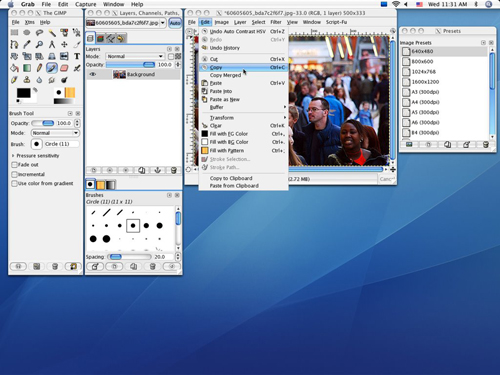Link building simplified
Link building is very simply creating links between sites that have a reason to link to each other. High quality links positive influence the search engine rankings of a website. When the only reason sites link to each other is boosting search engine rankings, it is called spam.
Natural reason to link gets natural links
Now, what other reasons can there be for interlinking? Helping your visitors with useful resources could be one. Let’s say, you have a website about hotels in Greece. It seems obvious that visitors to your website might also be interested in place to see in Greece. So if there is another website which provides such information, it will be only natural to create links with the other website.
One of the other reasons for link building can be boosting visitors. Let’s go back to the above example. The visitors to the hotel site would be interested in the site about places and vice versa. Thus cross linking between the sites would open up channels for receiving visitors. When such links are multiplied in number, they become a considerable source of visitors.
Another reason can be adding to business margins. Going back to the same example, it is only logical that visitors will end up using making reservations in the hotel and using the tour services of the website about attractions. Similarly, we can include car rental websites, e-commerce websites specializing in local merchandise, websites of airlines – all of which fall under the scope of effective, ethical link building. These are commonly known as natural links.
What will not be ethical, effective and might as well be spam, is to link to a website offering web design and development services. This is one service that visitors to both our sites would not require by a long shot. At least, not on a trip to Greece. Therefore, it will not be seen as a natural link.
Reciprocal and non-reciprocal links
Ok, these are the two types of links that you have heard of so much.
Reciprocal links
As the name suggests, reciprocal links are links that are reciprocated for. That is, if you receive a link from another site you have to link back in return. So these are two way links that benefit both the sites involved. However, as you can infer, these are links which are easiest to exploit thanks to “you scratch my back, I scratch yours” syndrome. That is why search engines are veering away from adding too much importance to reciprocal links in ranking algorithms.
This only means that you can no longer rely solely on reciprocal links for your site’s rankings. But these links still add value to your website and should not be ignored. In fact, they are still an important way of getting traffic.
Non-reciprocal links
Non-reciprocal links are one-way links for which you don’t have to offer a link back. Thus, these links are expressions of trust made by others in the value of your website. No wonder, search engines love one way links.
There are two ways of getting non-reciprocal links. One is to pay others for it. Another would be to develop your website into a commendable resource that others can help linking to. One of the finest examples of such resources is Wikipedia. Directory and article submissions are other preferred ways of getting one way links.
Videos and fun games have emerged as a new effective way of getting one way links. For example, the SEO game Search Engine Smackdown created by Neil Patel of Pronet Advertising. Such innovative tactics are known as link baits.
Factors to consider in link building
There are a lot many factors to be considered in an effective link building process. The page that you link to have to have a high page rank and good content. It should not be more than three clicks away from the home page. There should not be far too many links on the page as that might amount o link spam.
In addition, the sites that you link to should not be from the bad neighborhood. As in they should not be related to gambling, pornography, betting or should not have a history of banning for spam activities. There are also directories which use 302 directions for sites resulting in hijacking and should, therefore, be avoided.
More on link spam and prohibited practices next time!




